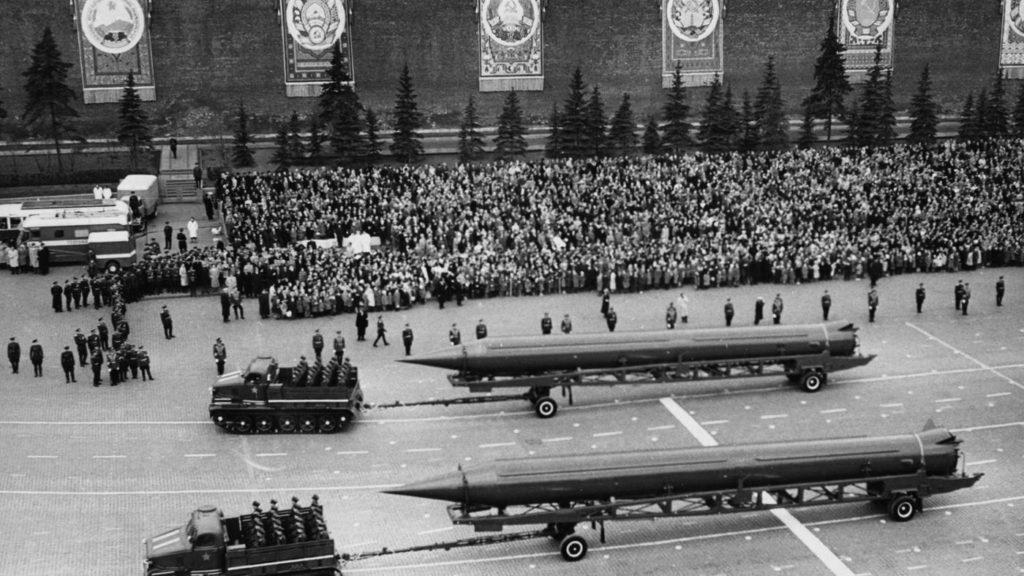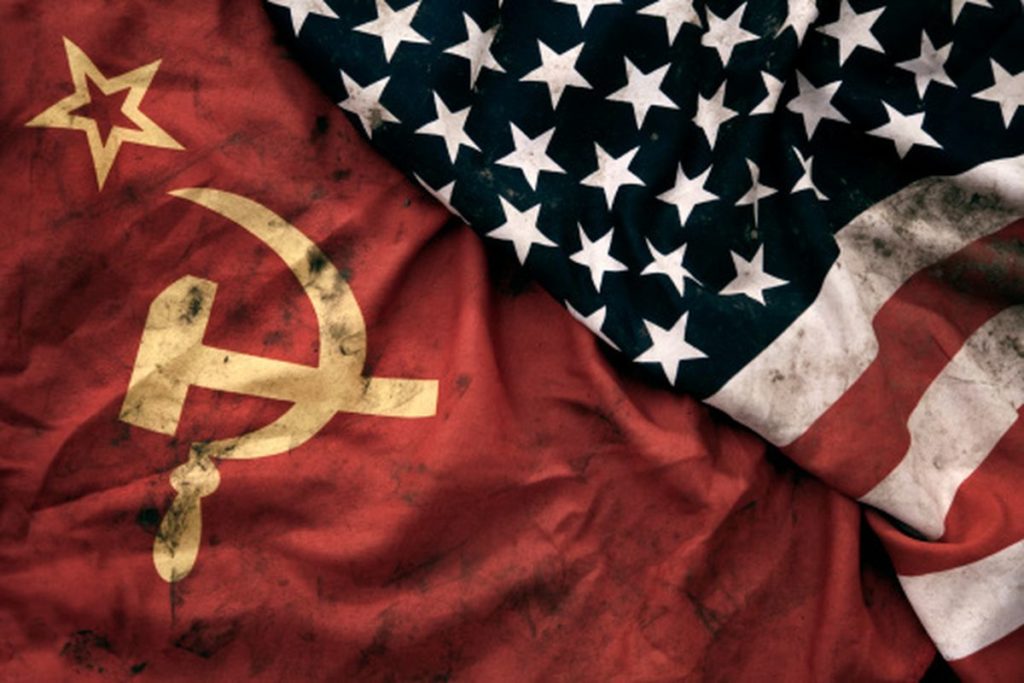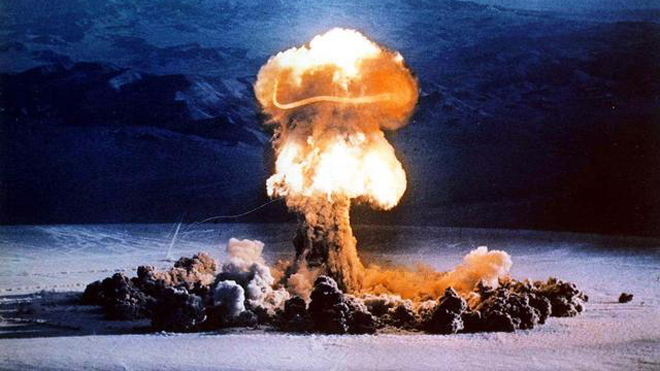
The last two years have been possibly the most alarming globally since the height of the Cold War, with the voting of Trump into the White house and his unconventional way of conversing to the world, Brexit, Korea and the continuing break down of the relationship between Russia and the West.

Old wounds from the past re-openned causing friction between Super Powers not seen since the days of the Cold War.
So why has the current instability caught so many off guard? Many of my generation and before that remember the days of the Cold War and saw the pulling down of the Berlin Wall and the end of the USSR and truely thought that we would see a more coming together of enemies becoming friends, convinced that we were starting to live in a more stable world, but now looking at the future, remembering the past and wondering where will this path we are following lead us to?
We are now in an age of Nationalism, an age of Trump, an age of Brexit becoming a reality…
The phrase by Fukuyama “The End of History?” which appeared in 1989 in the months leading up to the pulling down of the Berlin Wall after 40years of Super Powers locked against eachother. Now the Berlin Wall was down, The events of Tiananmen Square and the quashing of dissident student left Chinas one state party teetering, the Cold War was coming to an end, the fall of the USSR saw the break away of countries such as Poland from the Eastern Block and become democracies leading to an anti-communist revolution across Eastern Europe, Fukuyama speculated that the curtain was falling on the end of the 20th Century after decades of ideological struggle. Fukuyama wrote “What we may be witnessing is not just the end of the Cold War, or the passing of a particular period of post-war history, but the end of history as such: that is, the endpoint of mankind’s ideological evolution and the universalisation of Western liberal democracy as the final form of human government.”
This wasnt to say that mankinds tendancy for conflict had been left behind, as what would follow through the 90s with the Balkan wars and through to more recent times with the Arab Spring and wars in the Middle East such as Iraq, Afghanistan and Syria could be atributed to the moving towards Western democracy as countries reached their final destinations.
So the naivity of the world thinking that communism was at an end and that the West and its civilisation, ideology, consumerism paridise would see a poverty free utopia and a forever peace between former foes with democracy prevailing has now been seen after a period of self deception.
In the last two years, we’ve seen a rise in right wing, nationalist idiology become more accepted and mainstream, with the event of Brexit and Trump becoming president and an anti imigrant stance by many in the UK, blaming them for unemployed Brits and low incomes for those who do have jobs, a thinking emotionally driven with anger, driving politics in the same direction.
This flipping of the world we knew to what we are moving towards which I still cant believe, and certainly would never have thought a few years ago we would be living in times like this right now.
So we now find ourselves in polarised communities here in the West, where extreme far left liberalism and political correctness has fueled the far right to raise its ugly head and say, ‘Enough is Enough!’. We have been for some time now lived in a world where we have been afraid of saying something incase we are accused of being racist, homophobic or chauvinistic. This liberalism that has gone so far now that the idea of liberalism’s irreversable victory has permeated our lives defining our sense of who we were and our place in the world, leaving us all to be confronted by the reverlation that our foundational assumption of our world view is a sham.
At 43yrs old, the three decades since the collapse of the Cold War which has been the majority of my life time were not as Fukuyama prophisised, but instead a temporary anomaly.
I now look back and wonder how we were all so naive, as living in the world today with the tension between the West and Russia, particularly in the shadow of recent events where it is very safe to say that the recent assasination attempt on UK soil of a former Russian spy was state sanctioned from the very top by most likely Putin himself. Its as if the Cold War never ended.
As of the 1st April just days around the corner, the US and South Korea will restart military training exercises close to the North/South Korean border, again raising tensions in the region that had been temporarily put aside for the Winter Olympics, and we still have major conflict in the Middle East with Syria completely levelled to the ground with no end in sight.
Recently I saw mention of a book by Eric Schlosser, ‘Command and Control’, where I was able to find a few extracts from the book online to read. The book chronicles the various times when the US nearly caused the the world to be turned into a nuclear wasteland, from the accidental dumping of a nuke over the Mid-West by an airman to the escalation of nuclear weapon stokepiles.
In December 1960, Schlosser explained how Dwight Eisenhower, the then US President authorised the implementation of the Single Integrated Operational Plan (SIOP), effectively the blueprint for a nuclear attack on America’s communist enemies. An act of last resort, it was conceived with one blunt intention, to annihilate thousands of military and civilian targets in the badlands beyond the Iron Curtain with enough atomic hellfire to leave nothing but ash.
“Within three days of the initial attack,” Schlosser writes, “the full force of the SIOP would kill about 54 percent of the Soviet Union’s population and about 16 of China’s population — roughly 220 million people. Millions more would subsequently die from burns, radiation poisoning, exposure…Once the SIOP was set in motion, it could not be altered, slowed, or stopped.”
Not to be outdone, the Soviets were developing some fireworks of their own. In October 1961, the country’s “Mother of All Bombs,” known as “Tsar Bomba,” was detonated over the Arctic archipelago of Novaya Zemlya. The explosive yield of this one hydrogen bomb was 50 megatons, the equivalent of 10 times that of every scrap of ordnance triggered during World War II. A year later, the world’s two atomic superpowers faced off across the Florida Straits during the Cuban Missile Crisis, and humanity sidestepped mutual annihilation by the grace of two men’s hesitation.
We now see a stand off and war of words between the now President of the US, Donald Trump and the Leader of North Korea who now claims his country has the capability of launching a nuclear against the US, its as if we have learnt nothing from the past.
Have a think for just a minute… Two decades after world war two that came after the war that was supposed to end all wars, our leaders were pondering whether to commit mass murder on an unimaginable scale, with the potential for humanity to deal murder and devastation increased by factors of a thousand. And now we are seeing the same beating of chests from two leaders, the difference this time, its being played out on social media.

Unsurprisingly, in hindsight, it didn’t take much to put us in the position we now find ourselves in. An economic crash followed by a period of increased precarity and runaway wealth inequality, and just like that, we started to slip back into the mire.
The economic and social underpinnings of the liberal order suddenly appear, in the starker light of 2017, like the preconditions of past disaster. The rich are so detached, so utterly drenched in mad riches, that they seem blind to the scaffolds they are erecting for their own future. People everywhere are rejecting the evidence of their own eyes. There are flat Earthers, Holocaust deniers, and people shunning the scientific consensus on anthropogenic climate change even as their homes are swallowed up by the storm surges of unprecedented meteorology. There are religionists demanding a return to prelapsarian values, and fanatics killing for the sake of some words in a book. Humanity, that fragile creature, has reverted to type, retreating into whatever myths and metaphysics most complements our innate prejudices. It’s all there, folks. All the madness of the past and hocus-pocus that was supposed to have been beaten into submission by the inarguable primacy of liberal reason is back, and with a vengeance.
What lessons should be gleaned from this apparent relapse? Well, it shows us a few things that, in the naivety of the post–Cold War age, seemed to have been all too often overlooked. It reminds us that facts are not always able to countervail tribal instincts, and that the mere prospect of losing entrenched privileges is enough to drive a critical mass of a population into an abyss of self-destruction. It suggests that the shadow of enormous human suffering has a shelf life; that the concept of steady, inexorable social evolution is a lie. It shows us that Fukuyama was wrong.
When history is meant to be over and a single political faction begins to conceive of itself as the permanent manager of a static world…then those tasked with that maintenance must conceive of themselves as acting above politics itself. They become a superego, beyond the libidinal whims of any faction and dedicated not to some alternative vision of the world but to resisting all impulse toward alternatives.
The idea that progress has some kind of unstoppable momentum, as if powered by a Newtonian law, was always a very American belief. However, it’s really an article of faith, the Christian fantasy about history’s happy ending reconfigured during and after the Enlightenment as a set of modern secular fantasies…
The point is that for all the surprise and hand-wringing that has accompanied the destabilisation of recent years, the symptoms — manifested in the renewed political currency of tribal aggressions, and emotion over fact — mark little more than a return to business as usual.
Trump, Brexit, resurgent populism: These are no more aberrations than the advent of a Third World War would be out of character. That so many of us believed we had moved past such tumult is a testament to nothing more than the arrogance of our comfortable lives and the potency of our own wishful thinking.
Because history does not end. It just bides its time until the next conflagration.

Comments on A look back in history - Lessons still not learnt